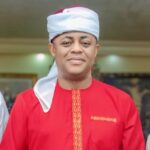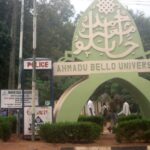Recently, Usman Sarki, an erstwhile Nigerian Deputy Ambassador to the United Nations and, lately, a Directing Staff in the National Institute of Policy and Strategic Studies, Kuru, circulated a piece urging for reinstatement of teaching of history as a subject of study in our schools.
I agree with him entirely and have decided to share edited excerpts from the paper with the readers. Please read on:
“I am motivated to write this piece by the memory of my teacher and mentor, Dr. Yusuf Bala Usman, whose lecture titled “History, Tradition and Reaction: The Perception of Nigerian History in the 19th and 20th Centuries”, remains as relevant today as the day it was first given on 27th April, 1977, at ABU, Zaria.
“With prescience of the accomplished historian, Dr. Bala Usman justified his speaking to the subject by noting that “I am raising these issues because I feel that they are very important issues which confront our peoples of this country today, not at the immediate level of daily existence, but at the more fundamental level of our long-term existence”.
This is profound because today, 43 years after the delivery of that lecture, Nigerians still grapple with fundamental issues such as whether they should live together or not.
Elite push and general popular disinterest in history, seem to have robbed Nigerians of their sense of discernment and objectivity in ascertaining assumptions forced upon them.
Distanced from historical facts and commonly unaware of their past, many Nigerians assume as facts any or all issues thrust upon them even if it means leading to the inveterate dislike or hatred of their fellow country men and women, fostered by the stock-in-trade manipulations of detractors and hate mongers.
Self-awareness does not only begin with the consciousness of our being. It is knowing where we came from, what is our present condition and where ultimately we are headed.
This social understanding of self-awareness must therefore, necessitate the study of history which should inform us of what happened before we became, and the forces shaping our being here presently, as well as what these mean for our future.
The first thing that the study of our past should challenge and seek to correct, is the simplified view of the development of our societies along elemental, primitive and tribal lines.
This assumption underlies the way we are seen or our history is perceived as a people that barely rose above the level of nature, and in fact closer to the animals with which we cohabit our ecosystems, before the coming of the Europeans in our midst.
The rectification of this romanticised and often racist view of us is an urgent task that must be undertaken with all the tools and wisdom given to us by the study of history.
Nationality can only effectively be created by being within the fold of that entity you wish to call a “nation” and identifying with all its attributes, challenges and prospects.
To really understand what the “nation” means, a recourse must be made to the study of history, through which a consciousness will be developed about being part of that entity and sharing in its past and present, and hoping to contribute to the development of its future.
History, therefore, is the determinant of nationhood. Building a nation-state must therefore, also involve the teaching and understanding of history, otherwise what one will end up having is a hotchpotch of groupings of people unconnected by any common denominators that will unify them.
The essence of studying history to make it not merely a tool of inquiry about the past, but an analytical instrument towards ascertaining facts, testing assumptions and creating the conditions necessary for the progressive transformation of societies.
Thus, the Department of History at ABU under the illustrious leadership of teachers like Dr. Abdullahi Smith and Dr. Bala Usman, and many other notables decided to set out the critical criteria for teaching History.
The essence is to make the student comprehend the historical forces and developments which have shaped and are shaping the lives of the peoples of Nigeria, Africa and the rest of the world and develop in him the capacity to consciously relate to these forces and developments in ways which foster Nigerian and African unity and independence.
These positions were not mere aspirations but realities that were inculcated into all History students at the University. It is that defining philosophy and approach to historical study that set the products of ABU apart from their counterparts elsewhere.
It is this same guiding principle that made them amenable to become deeply patriotic and have a very clear and unclouded notion of what Nigeria is, and how to bring about her unity and forge her continued existence as a nation.
It is for these and other reasons that I posit that the teaching of history must be reinstated in all Nigerian schools, to include such subjects like ethics, etiquette, civics and other beneficial lessons that will shape our attitudes to our neighbours, compatriots and other Africans as well.
It is not too late to retrace our steps from the ill-advised decision to terminate the teaching of history to Nigerians in their schools. A timely course correction can be made and better results towards producing more enlightened citizens that would bring about genuine national unity and progress can be produced along generational lines.” Ambassador USMAN SARKI

 Join Daily Trust WhatsApp Community For Quick Access To News and Happenings Around You.
Join Daily Trust WhatsApp Community For Quick Access To News and Happenings Around You.


